News |
Key findings from the report indicate a high level of satisfaction among project coordinators who have utilised professional project management services, acknowledging a significant reduction in their workload. The survey, which gathers 64 responses, reveals that coordinators could save 3-5 days a month, emphasizing the crucial role of professional project management in enhancing project implementation. Furthermore, the report highlights the greater need for professional project management support within the private sector compared to Research and Technology Organisations (RTOs) and other public sector entities. Internal communication, good management practices, and a focus on exploitability are also among the essential components for the successful implementation of EU-funded projects. The EAIC's report also offers valuable recommendations for the European Commission, such as further simplifying the financial and contractual rules and applying a standard reimbursement rate of 100% for management activities, among others. These insights aim to foster a more efficient and effective project management practices across European collaborative projects. This report is a testament to EAIC's commitment to supporting European innovation through better project management practices, providing valuable guidance for EU project consortia. For further details, please contact us at [email protected] EAIC advocates for the inclusion of tax incentives for Research and Development (R&D) within the BEFIT - Business in Europe: Framework for Income Taxation. EAIC Members are uniquely positioned to offer invaluable insights and expertise on how tax incentives can effectively catalyse R&D activities.
EAIC welcomes the opportunity to provide comments on the Proposal for a Council Directive on Business in Europe: Framework for Income Taxation (BEFIT) (COM(2023)532 final). EAIC recognises the relevance to introduce a common corporate tax system within the EU and the opportunity that arises with the BEFIT framework. It is time to position innovation within the new framework for taxation at the European level. To do so, EAIC calls on the European Union decision makers to build on the formerly proposed CCCTB (Common Consolidated Corporate Tax Base) to ensure that the European Union takes a leap in innovation. Due to the magnitude of the challenges Europe faces, and the geopolitical keys at play, the European Union must take advantage of this opportunity. The BEFIT is designed to create a more stable and predictable business environment in the EU. By reducing fiscal uncertainty, companies can plan long-term investment decisions and their R&D activities with more confidence. Therefore, it is important that the BEFIT proposal includes incentives for R&D, recovering part of the proposal for the CCCTB. This inclusion would allow BEFIT to offer an opportunity to improve the investment environment in Europe. EAIC recommends to:
Download EAIC response to the European Commission consultation here. The EIC Accelerator is the most impactful and coveted funding instrument that the EC has at its disposal to fund high-risk deep-tech innovation. The funding decisions made by the EIC in the coming years will durably shape the future of European deeptech, with €7 billion currently allocated to the EIC Accelerator to fuel the next European champions in strategic domains such as quantum, bioinformatics, high-performance computing, cybersecurity, cleantech, healthcare, etc.
As part of the revamp of the EU Multiannual Financial Framework (MFF) presented in June by the European Commission, the EIC is now in line for an extra €2.6 billion for the Accelerator programme to provide, via the EIC Fund, additional equity funding of €15-50 million to support scale-up of companies in three strategic areas: deeptech, cleantech and biotech. The EAIC commends the European Commission for this proposed reallocation of budget as access to sufficient capital post-initial funding will allow the selected scale-ups to continue their R&D efforts, scale their operations, and maintain a steady growth trajectory without resorting to non-European investors. However, early-stage startups are not targeted by this new EIC Fund compartment: they will have to rely on the normal EIC Accelerator budget, which will see a significant decrease in 2024, from €1.09 billion in 2023, to €563 million in 2024 available for new EIC Accelerator laureates. On Tuesday 10 May, EAIC submitted its contribution to the European Innovation Agenda call for evidence launched earlier in April by the European Commission.
The EC was seekign feed-back on Five essential action points it identified to improve Europe’s innovation performance:
The EAIC welcomes this initiative, we stress in particular the following:
The Research and Innovation days will open tomorrow, marking the long-awaited launch of the first Horizon Europe 2021 calls. Thousands of companies, research centres and SMEs with existing experience in collaborative European Research and Innovation (R&I) projects, as well as other applicants, new to this programme, are in the starting blocks. European Innovation Consultants as well.
This week will see the opening of the first calls under Pillar II of the Horizon Europe Programme. Horizon Europe’s total budget for the next 7 years amounts to the record amount of €95.5 bn, of which half will address global challenges and European industrial competitiveness. Over 700 topics (collaborative projects to be funded by the European Commission) will be published in the next 2 years, funding thousands of projects involving various partners (industrial partners, research centres, SMEs, or non--profit organisations, etc.) for several years. Each project will require excellent coordination and management skills to ensure public funds provided by the Commission are spent efficiently to develop novel solutions. From a maturity point of view, projects will span from basic research to applied innovation, ready to be commercialised when the project is finalised. Ambitious exploitation strategies (i.e. what will happen with the research and innovation beyond the project lifetime) will have to be included in funding applications to convince evaluators. In 2019, Innovation Consultants across Europe decided to strengthen their collaboration through EAIC, the European Association of Innovation Consultants. The purpose of the association is to allow for better recognition of their work and contribution to the support of many actors, such as industry and research organisations, who are willing to be part of EU projects to develop breakthrough innovations but have limited expertise and/or time to access these funding instruments. Consultants advise them on how to develop their innovation process as well as on how to access public funding needed to bring their innovation to market. With the new Horizon Europe collaborative calls now opening, Innovation Consultants are ready to support projects based on their previous experience and track records with the previous framework programme. EAIC now includes more than 40 members across the EU with a vast experience in R&I programmes but also in alternative funding opportunities for the private and public sectors in Europe. Under Horizon 2020, the predecessor of Horizon Europe for (2014-2020), the average success rate of 11% has decreased in the last years of the programme as budgets ran out and consortia competed for the remainder of the funding. Many companies and research centres have used the support of innovation consultants, to increase their chances of success , to drive the proposal writing process under time pressure, to find the right partner and support them in the professional management of projects when approved. The members of EAIC have decided to sign a code of conduct which is a prerequisite to be part of the association, which ensures that they respect deontological principles, such as impartiality, e.g. they cannot write proposals and be part of the evaluation committee at the same time. On 21st June, EAIC elected a new board of members composed of 12 company representatives; you can find the composition of the new board here: https://www.eaic.eu/about-eaic.html Consult the full list of EAIC members here: https://www.eaic.eu/members.html View the Horizon Europe calls that have already been announced through the official Work Programmes of the EC here. About EAIC The European Association of Innovation Consultants (EAIC) gathers active Innovation Consultants in the field of European research and innovation projects. The group aims to facilitate the exchange and promotion of best practices and success stories, as well as to uphold professional skills and expertise in European RDI projects. Today, the group gathers 46 members, active in more than 24 countries around Europe. www.eaic.eu In its 10th edition, the EU Prize for Women Innovators celebrates the women entrepreneurs behind game-changing innovations. In doing so, the EU seeks to raise awareness of the need for more female innovators, and create role models for women and girls everywhere.
The prize is awarded to the most talented women entrepreneurs from across the EU and countries associated to Horizon Europe, who have founded a successful company and brought innovation to the market. The prize is managed by the European Innovation Council and SMEs Executive Agency, and the winners are chosen by an independent expert jury. Press Release "New Association kicks off to boost European research and innovation investments"6/11/2020 The most relevant European companies in innovation consultancy join efforts to boost the competitiveness in the research and innovation ecosystem. On Thursday, 5 November, 2020, the European Association of Innovation Consultants (EAIC) was launched. Created at the initiative of the French Association of Innovation Consultants (ACI) as an informal gathering in a working group back in September 2019, the creation of the EAIC was formalised yesterday by its 42 members active across Europe. A board of 8 members as well as a president was elected.
The European Commission’s DG for Research and Innovation (DG RTD) has launched a Manifesto for EU COVID-19 Research, which aims to maximise the accessibility of COVID-19 research results that benefit from EU funding.
Today, EWGIC has signed this manifesto and commits to sharing research results related to COVID-19 prevention, testing and treatment. By signing this manifesto, EWGIC and its members commit to
This initiative is in line with the Coronavirus Global Response, launched by Ursula von der Leyen, President of the EC, as well as with the Solidarity Call to Action, established by the World Health Organisation. Read the full Manifesto here. More information here. Yesterday, the European Commission published the results of a stakeholder consultation in the report “A Robust Innovation Ecosystem for the Future of Europe.”
The report summarises the outcomes of 8 workshops held between October 2019 and February 2020, attended by approximately 350 participants. Resulting in a conference “A Robust Innovation Ecosystem for the Future of Europe” held in Brussels on the 18th of February, 2020, the report was produced by the Directorate General for Research and Innovation, European Innovation Council (EIC) Task Force and the Unit of Innovation Ecosystems. It gathers the insights from various stakeholders, including investors, companies, start-up communities, universities, local, regional and national authorities linked to innovation policy. Recommendations from the report will be considered by policy makers shaping EU innovation ecosystems. In view of enabling the development of Horizon Europe, and in addition to collecting and analysis the feedback from the consultation phase, the report aims to
Online questionnaire results on challenges identified in the innovation ecosystem can be found in the report. These challenges are grouped in 3 major pillars: connectedness of stakeholders, competence and talent, and capital. To provide an overview of the challenges and main action lines for Horizon Europe’s implementation, throughout the report, stakeholders’ feedback is analysed, structured, and summarised into many interesting insights on the European innovation ecosystem. Read more here. On September 22-24, the European Commission invites stakeholders to debate and shape the future research and innovation landscape through a virtual event.
During this annual flagship event and through interactive sessions, participants will provide input on the EU’s research and innovation policy. Participants include policymakers, researchers, entrepreneurs, and citizens, who will debate the role of funding and research and innovation policies in the EU’s recovery. As a response to the global pandemic, the EU must now enable a sustainable, inclusive, and resilient transition. This 3-day event will be the occasion to contribute to policy co-designing, thought-provoking panels and participate in matchmaking opportunities. At EWGIC, we expect this event to be instrumental in the coordination of excellent science and beneficial for Europe’s recovery, as we also look forward to Horizon Europe’s launch event. Visit this link for more information and to view the full programme. The Multi-Annual Financial Framework (MFF) 2021-2027 is undergoing intense negotiations within the European Institutions. Horizon Europe’s budget has been decreased by 5 billion euros, straying away from the European Commission’s initial ambitious plan. The European Council and Parliament (EP) have just a few months left to complete their negotiations.
EWGIC, the European Working Group of Innovation Consultants, welcomes the European Council’s agreement on the MFF and the Next Generation EU budgets, but regrets the treatment of European research and innovation funding especially related to Horizon Europe. EWGIC supports Parliament’s stance that the Council’s budget deal needs to be transformed to a more future-oriented approach. We are now calling the European Parliament to ensure Horizon Europe will get back at least to the original proposal that the EC made in 2018 of 83.5 B€ (2018 prices). So that R&I can actually contribute to our continent's recovery and allow for the development of added-value products and solutions developed in Europe. On 22 June 2020, the European Commission released the Innovation Scoreboard (EIS) 2020, which demonstrates Europe’s improving innovation performance.
According to the EIS, on average, the innovation performance of the EU has increased by 8.9% since 2012, with performance having increased the most in Lithuania, Malta, Latvia, Portugal and Greece. Sweden continues to be the EU Innovation Leader, followed by Finland, Denmark and the Netherlands. This year Luxembourg (previously a Strong Innovator) joins the group of Innovation Leaders, while Portugal (previously a Moderate Innovator) joins the group of Strong Innovators. At a global level, it is the second year that the EU surpasses the United States. The EU also continues to have a performance lead over China, Brazil, Russia, South Africa, and India. Since 2012, the EU’s performance gap with South Korea, Australia and Japan has increased, while the EU’s performance lead over the United States, China, Brazil, Russia and South Africa has decreased. Background The EIS functions as an assessment of the performance of research and innovation in EU countries and identifies “performance leaders” in specific areas of innovation. It covers the EU Member States as well as Iceland, Israel, Montenegro, North Macedonia, Norway, Serbia, Switzerland, Turkey, Ukraine and the United Kingdom. The EIS contains 4 “performance groups:”
The innovation performance is measured based on 27 performance indicators, within 10 innovation dimensions and in 4 main categories.
Source: ec.europa.eu Click here to view the full Q&A document published by the EC on 23 June 2020. Visit this page for more information on the EIS. The European Commission announced yesterday that over 2,000 sustainable innovation companies from 38 different countries have applied for financial support of €7.8bn from the one-off EIC Accelerator Green Deal call. We can expect a 4% success rate for this call, a similar level as for the October 2019 cut-off.
When Commission President Ursula von der Leyen outlined Europe’s “green recovery” plan to the European Parliament last week, it was understood that the Green Deal would be placed at the centre of the EU’s recovery effort. The Green Deal has the capacity to help the EU economy recover from the COVID-19 crisis, with proposals of this specific call focusing on the following aspects: - climate mitigation - the transition to a clean & circular economy - zero pollution ambitions - toxic free environments Read more here. |
Categories
All
Archives
July 2024
|

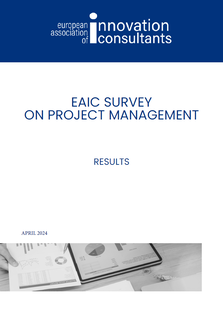
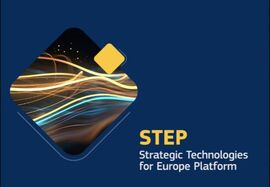
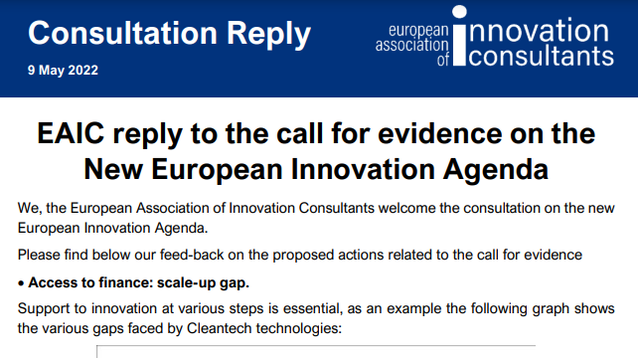

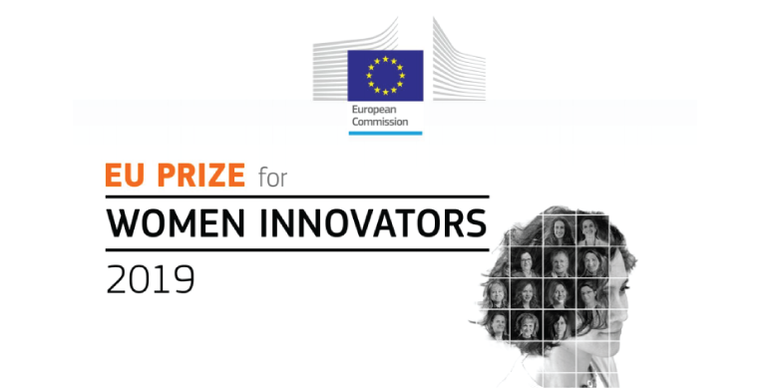

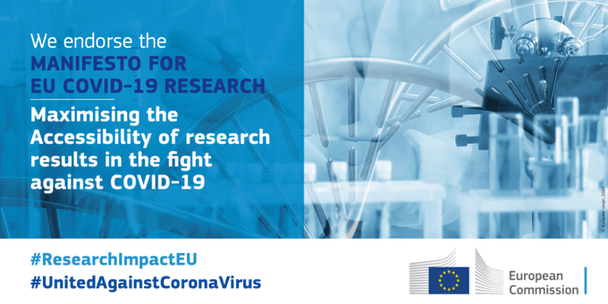
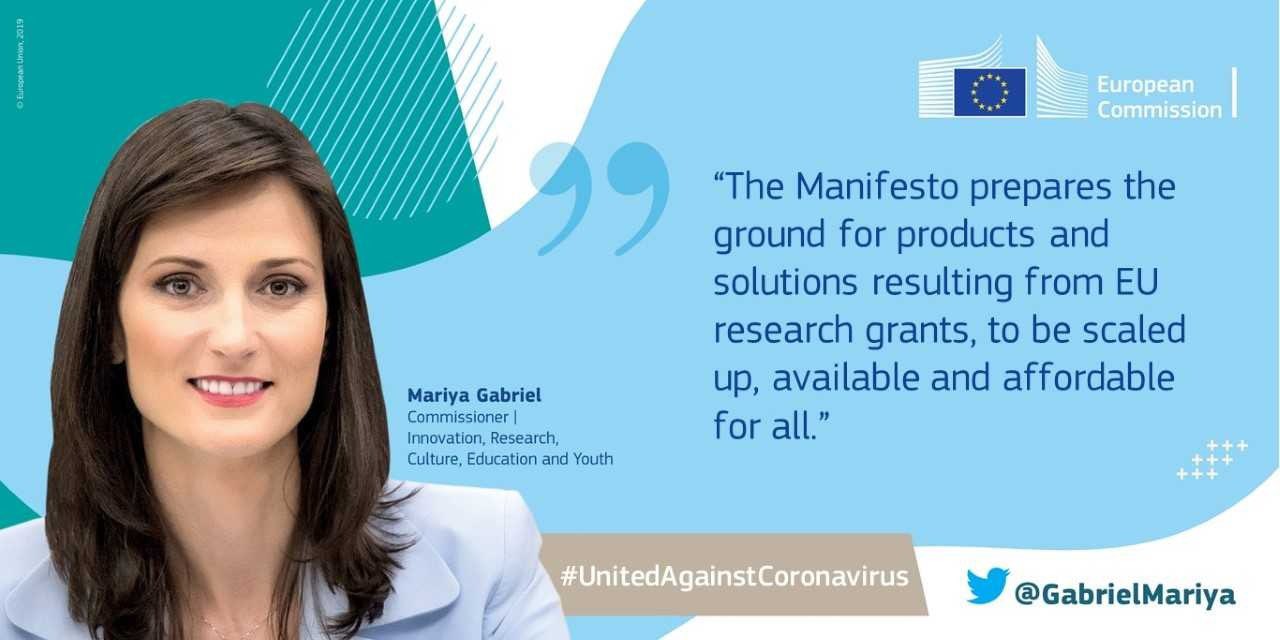
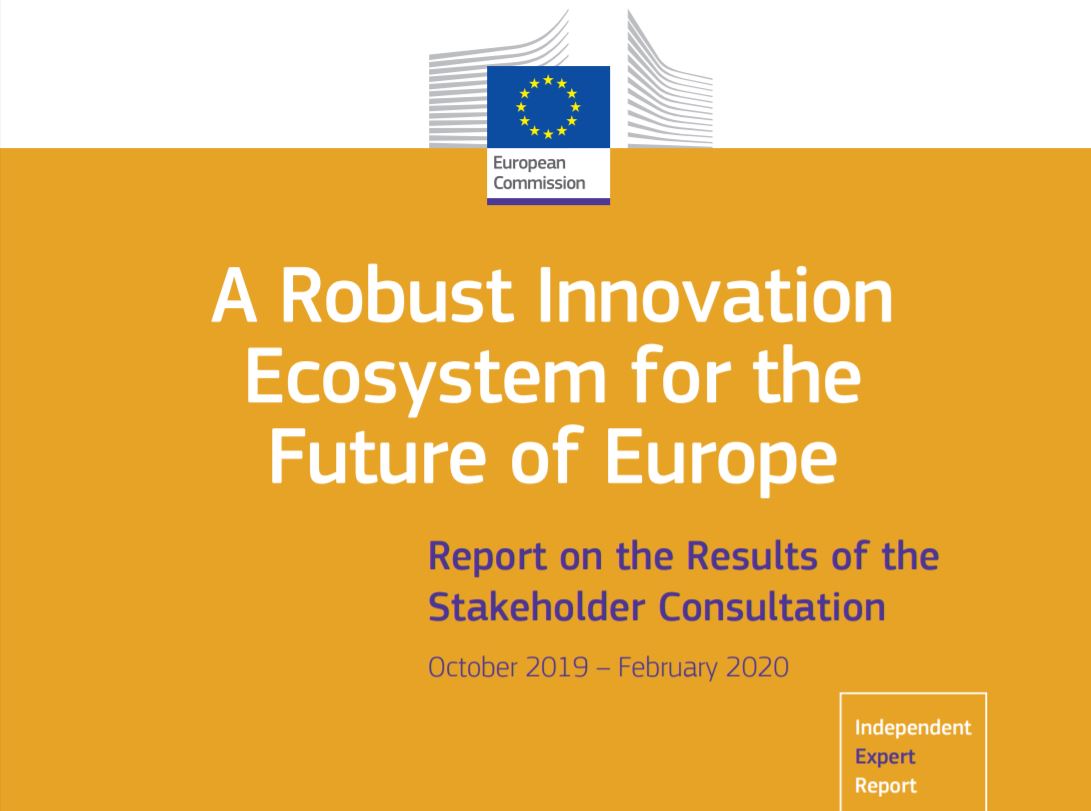

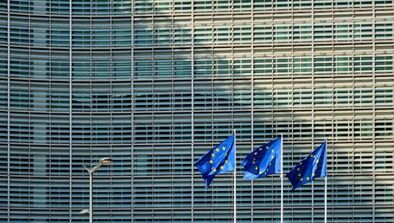

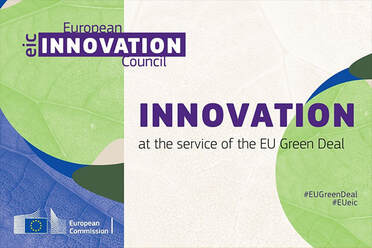
 RSS Feed
RSS Feed
